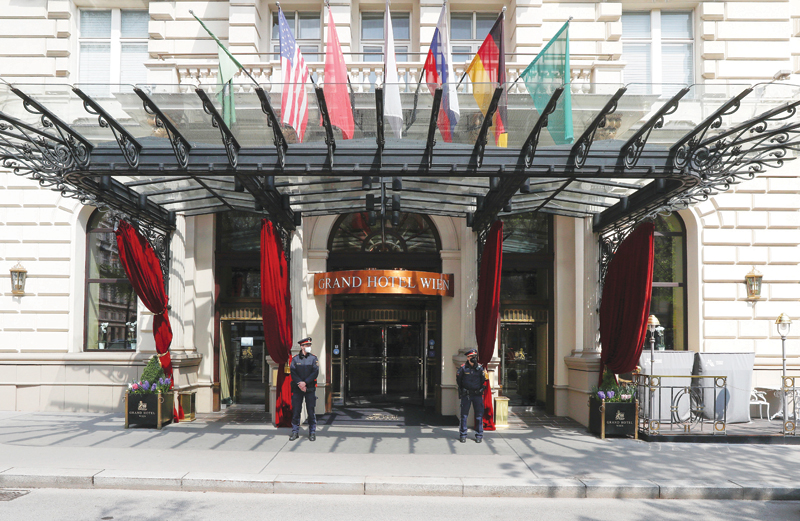

DUBAI: Iran began enriching uranium to 60 per cent purity in order to show its technical capacity after a sabotage attack at a nuclear plant, and the move is quickly reversible if the United States lifts sanctions, the Iranian government said on Tuesday.
Talks in Vienna aimed at bringing the United States and Iran back to full compliance with a 2015 nuclear deal have been further complicated by an explosion at Iran’s main uranium enrichment facility at Natanz.
Iran has responded by saying it is enriching uranium to 60 per cent fissile purity, a big step towards weapons-grade from the 20 per cent it had previously achieved. The 2015 pact between Iran and world powers had capped the level of enrichment purity at 3.67 per cent — suitable for generating civilian nuclear energy. Iran denies seeking a nuclear weapon.
“The start of 60 per cent enrichment in Natanz was a demonstration of our technical ability to respond to terrorist sabotage at these facilities,” Iranian government spokesman Ali Rabiei told reporters in Tehran.
“As in previous steps (in curbing Iran’s commitment to the 2015 nuclear deal), ... this measure can quickly be reversed for a return to the agreed enrichment level in the nuclear accord if other parties commit to their obligations,” Rabiei said, in remarks streamed live on a state-run website.
Tehran says the Natanz blast was an act of sabotage by Israel, and on Saturday Iranian authorities named a suspect. Israel has not formally commented on the incident.
Iran responded to the explosion by saying it is enriching uranium to 60 per cent.
Iran and world powers have made some progress on how to revive the 2015 nuclear accord later abandoned by the United States, and an interim deal could be a way to gain time for a lasting settlement, Iranian officials said on Monday.
In Jerusalem, Israeli Foreign Minister Gabi Ashkenazi told visiting British Cabinet Office Minister Michel Gove that Iran should not be permitted to obtain a nuclear weapon.
“Iran is undermining stability in the entire Middle East and the international community must act to prevent Iran from achieving nuclear weapons capability. Not today and not in the future,” an Israeli statement quoted Ashkenazi as saying.
IRAQI MEDIATION
Meanwhile, Iran said on Tuesday it welcomes Iraqi mediation to help mend its ties with Gulf Arab states, following reports that Saudi and Iranian officials had held discussions in Iraq. The remarks by the Iranian ambassador to Baghdad came a day after Iran’s foreign ministry said that Tehran always welcomed dialogue with Saudi Arabia, without confirming that talks had been held. The two countries severed diplomatic ties in 2016 and have been engaged in several proxy wars in the region as they vie for influence.
“The Islamic Republic (of Iran) supports Baghdad’s mediation to bring Tehran closer to countries with which we have faced challenges or with which ties have cooled, and Iraqi officials have been notified of this,” Iraj Masjedi, Iran’s ambassador to Iraq, was quoted as saying by the state news agency IRNA.
Asked about any progress in talks, Masjedi said: “We have not yet reached clear results and significant progress. Let us wait for the work to go forward and we can see practical results.” — Reuters
Oman Observer is now on the WhatsApp channel. Click here



